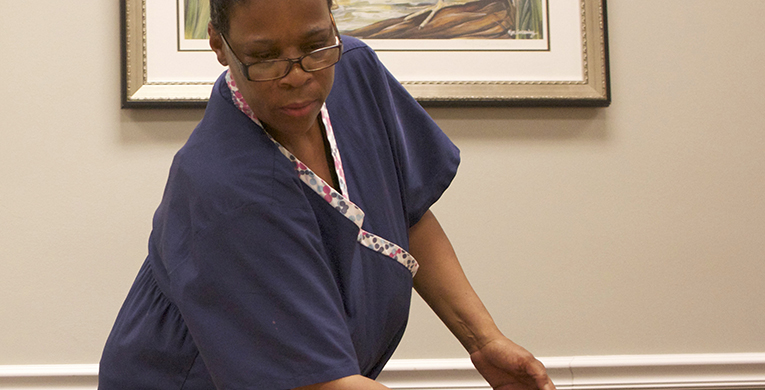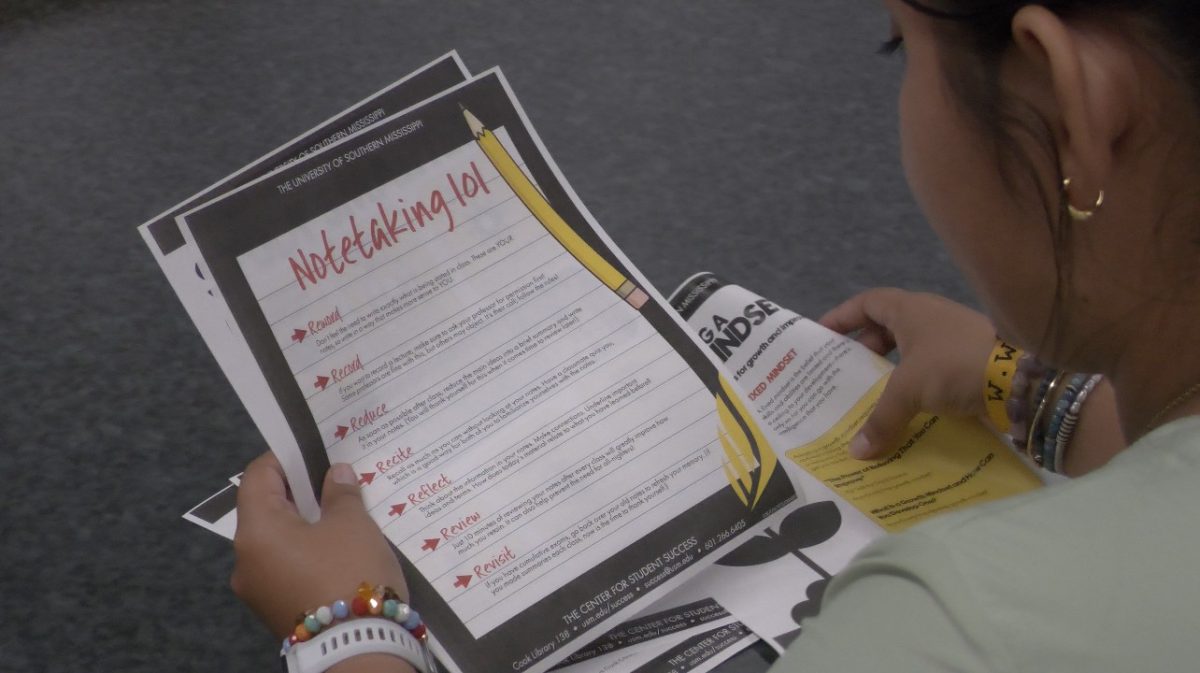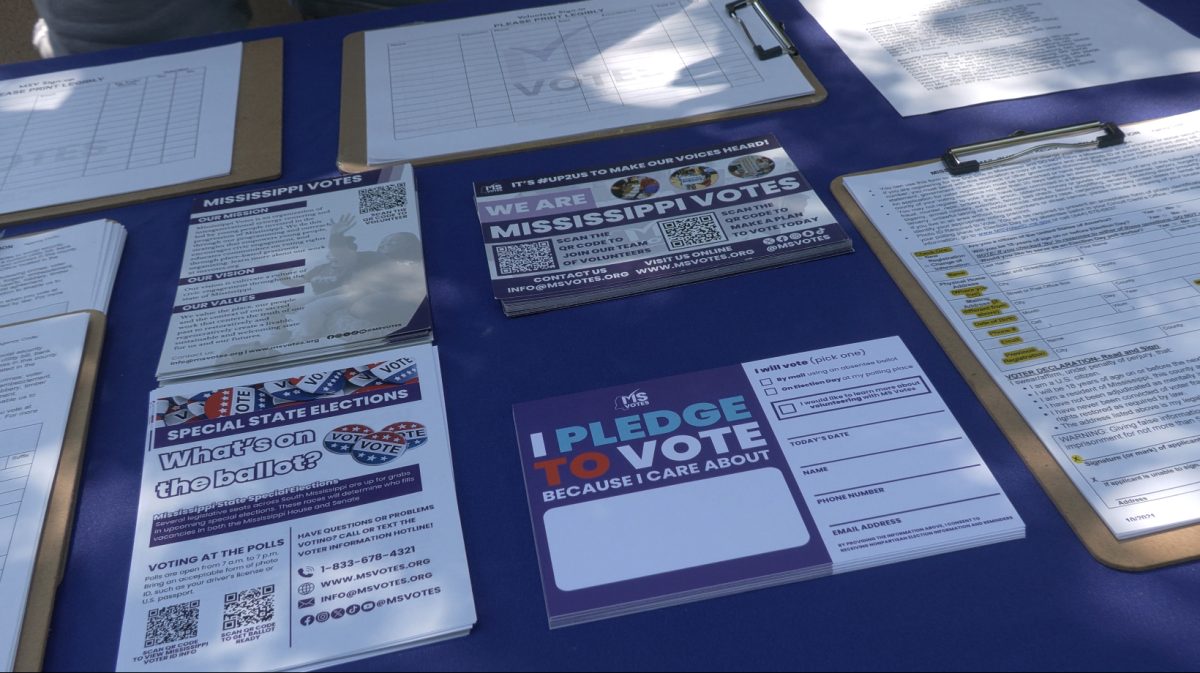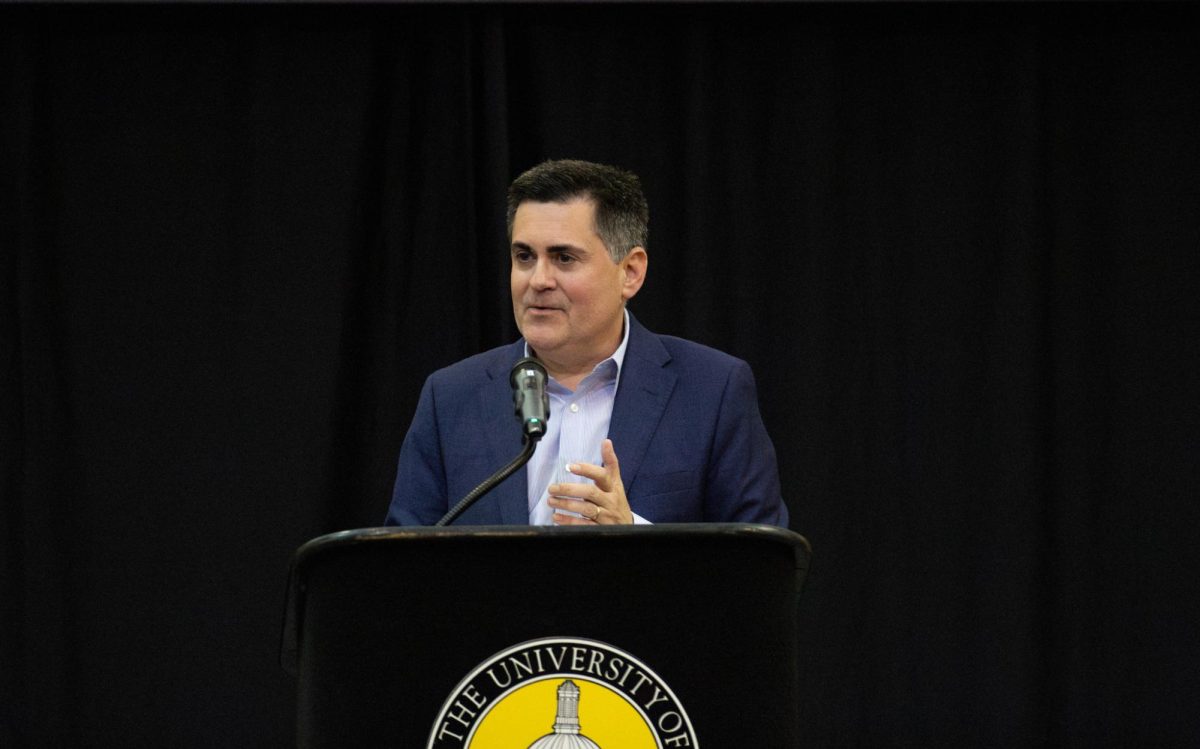
Hunt Mercier/Printz
Armed with brooms and dustpans in one hand and baskets equipped with brushes and cleaning supplies in the other, 36 women, custodial housekeepers, gather before a morning of tackling bathroom dirt and scum.
Nearing 9 a.m., aligned along the walls of Century Park’s first floor lounge in matching uniforms of teal and black, they await instructions from Senior Custodial Supervisor Lonnye Breland.
Breland was once in their shoes. Now she is the coach of the organized, footballesque team of housekeepers at The University of Southern Mississippi.
Having a cigarette and coffee and grabbing a few more cleaning signs before departing to Century Park, Breland is as ready as she will ever be.
She signals to the team with directions and they disperse, some taking the elevators to the upstairs dorms and others handling the ones downstairs.
Knock, knock, knock. Davida Merritt stands outside the door before entering. “Housekeeping!” She repeats this process twice, following protocol in the playbook. “Housekeeping, keying in.” She enters and places a doorstop underneath the door.
Merritt hates to see things out of place, she admits. She actually loves to clean.
Her childhood dreams of becoming a school teacher did not become a reality, but Merritt enjoys the work she does.
For a moment she takes a walk down memory lane. She smiles as she confesses her love for children. Her motions are swift and steady, exact and confident. She runs the brush across the tub like a running back runs a football.
Bad days are common at work for Merritt, but the good days outweigh them. With one hand scrubbing the sink, she has her free hand on her vibrant uniform. Each year, the custodial housekeepers have a fashion show where they shop and model a variety of colorful uniforms. Pride is taken in the way they look.
“If you look any kind of way, they’ll treat you any kind of way,” one housekeeper put it.
Each day of the week, they wear a different set of matching uniforms. On the elevator going up are a few women on the team not in uniform. “Temps” they are called. They work hard hoping to get officially hired – to get their jerseys.
Bent over a tub, scrubbing with a sponge much like a Brillo pad, is Betty Cole, a temp. Her grey hairs are pulled back and collected by a ponytail holder. This is one of her first few days on the job. “Hmph” she grunts as she rushes the pad back and forth across the tub. She wipes her brow with her forehand.
It is a change for her working with more physical labor than mental.
When she is not cleaning, Cole works at a food spot on campus, A Stone’s Throw. She needs 40 hours a week so she stays busy. Her eyes stay focused on the tasks at hand. She does what she has to do.
A stern voice interrupts with “man on the hall” down the hall of the women’s dorm.
Nearby is Minnie Williams, who is cleaning the shower of a handicap accessible room. “Mrs. Minnie!” Breland exclaims as she peeks in to check on things.
Williams was a hospital food and nutrition supervisor once. She spent years working her way up in the health field. But she dropped the ball when her sister died. Losing her made things a little different. She needed a change of scenery but did not realize it would be a nearly 10-year change.
Williams has been cleaning for nearly a decade, more than many of the other housekeepers. “Until God tells me to move, I’ll be here,” Williams said.
While many students are still sleeping, they are busy at work.
From essays and cakes to gifts and notes on the mirrors, many of the women expressed how much the small efforts of the residents meant to them.
After a busy morning of scrubbing showers, sinks, tubs and toilets, they return to where they first dispersed, waiting to be dismissed. The day has not ended for them. It has only begun.
































